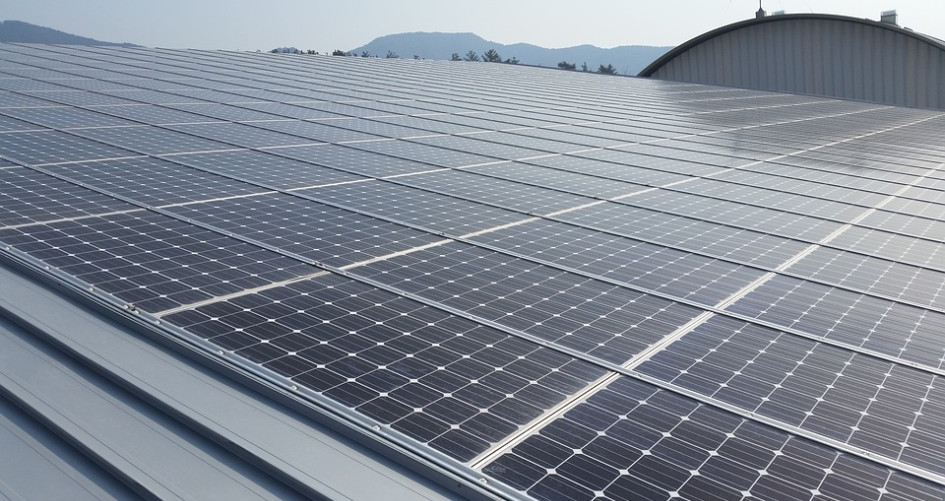Highlighting the vital role of the private sector in meeting the goals of the Paris Climate Change Agreement, a new report by the International Finance Corporation (IFC) shows how developing countries can translate their national climate action plans into reality by creating the right policies and incentives to channel trillions of dollars in private investments towards low carbon and resilience.
Released just days ahead of the United Nations Climate Change Conference (COP23, 6-17 November) in Bonn, the report “Creating Markets for Climate Business” focuses on the role of smart policy reforms, innovative business models and enabling business conditions in fostering private investments in key sectors of the green economy, including renewable energy and urban transport, in emerging markets.
“The private sector holds the key to fight climate change,” said IFC CEO Philippe Le Houérou. “The private sector has the innovation, the financing, and the tools. We can help unlock more private sector investment, but this also requires government reforms as well as innovative business models – which together will create new markets and attract the necessary investment. This can fulfill the promise of Paris.”
Two years after the 2015 Paris Agreement, environment ministers, heads of state, representatives from the private sector and various other stakeholders are gathering in Bonn to lay the groundwork for the effective implementation of the Agreement.
Under the Agreement, countries agreed to limit the rise in global average temperatures well below 2 degrees Celsius and as close as possible to 1.5 degrees above pre-industrial levels. A significant reduction in greenhouse gas emissions and reduced dependence on fossil fuels will be key to achieve these commitments.
The report also includes examples of countries benefiting from introducing policy reforms and facilitating an enabling environment for green investments. For example, Egypt recently signed an agreement with IFC to build the world’s largest solar park for which IFC is providing a USD653 million debt package that will finance the construction of 13 solar power plants near the city of Aswan.
The agreement follows a series of reforms by the Egyptian government and the creation of innovative financing structure which will help lower the electricity generation costs in the country.
The report points out that more than around USD 1 trillion is already being invested in climate-related projects, but that stronger climate action and an enhanced role of the private sector in industry sectors such renewable energy, off-grid solar and energy storage, agribusiness, green buildings, urban transportation, water and urban waste management, is required to accelerate the transition toward a low-carbon economy.
Below are some of the key findings of the report:
- Renewable energy investments could climb to $11 trillion cumulative by 2040—reforms such as renewable energy auctions, land title reforms, and supportive energy storage policy frameworks would make this possible.
- Investments in off-grid solar and energy storage can reach $23 billion a year by 2025 —if countries use differentiated tariffs, clear technical and safety standards, and targeted financial incentives while supporting new business models for community based solar such as Pay-as-You-Go and innovative finance solutions such as securitization assets.
- Trillions of dollars of agribusiness investment can become more "climate-smart"—if governments ensure property rights, good transportation infrastructure, and regulations and fiscal policies that encourage climate-smart investment while promoting improved farmer-training practices and using financial innovation to provide working capital for farmers.
- Investments in green buildings could reach $3.4 trillion cumulative by 2025 in key emerging markets—if countries adopt better building codes and standards and create targeted financial incentives such as green-building certification and mandatory benchmarking of energy use. Other important reforms should encourage new utility business models, such as green mortgages and energy service companies.
- Trillions of dollars in investments in sustainable urban transportation can be mobilized in the coming decade—if governments issue mandates to enable infrastructure investments and adopt municipal transit plans that can spur innovations, such as light rail.
- Investments in water supply and sanitation could exceed $13 trillion cumulative by 2030—for this governments would need to establish water pricing at predictable and sustainable levels to increase the creditworthiness of utilities while entering into public-private partnerships and adopting performance-based contracts.
- Investments in climate-smart urban waste management could reach $2 trillion—if cities work to attract private sector participation through improved regulatory and enforcement frameworks, using economic incentives and cost-recovery mechanisms such as feed-in tariffs, and driving waste-conscious consumer behavior.
The latest report is a follow up to the Climate Investment Opportunities report issued by IFC last year which found that the Paris Agreement could create USD23 trillion in investment opportunities for 21 emerging market countries.
See the relevant IFC press release here.
Photo credit: Pixabay
